Led by Assistant Professor of Religion Philip Francis, 13 first-year students begin their UMF adventure by charting their own course to a life well lived.
By Marc Glass
What counts as a good life? An abundance of wealth? Success in the workplace? To love and be loved? Or did Freud get it right — is there really nothing more than “love and work…work and love”?
In late August, 13 first-year students began their UMF adventure by grappling with this and another weighty, existential question — How do I go about living a good life? — in an innovative First-Year Fusion seminar, The Good Life Course, Part 1: Back to Nature.
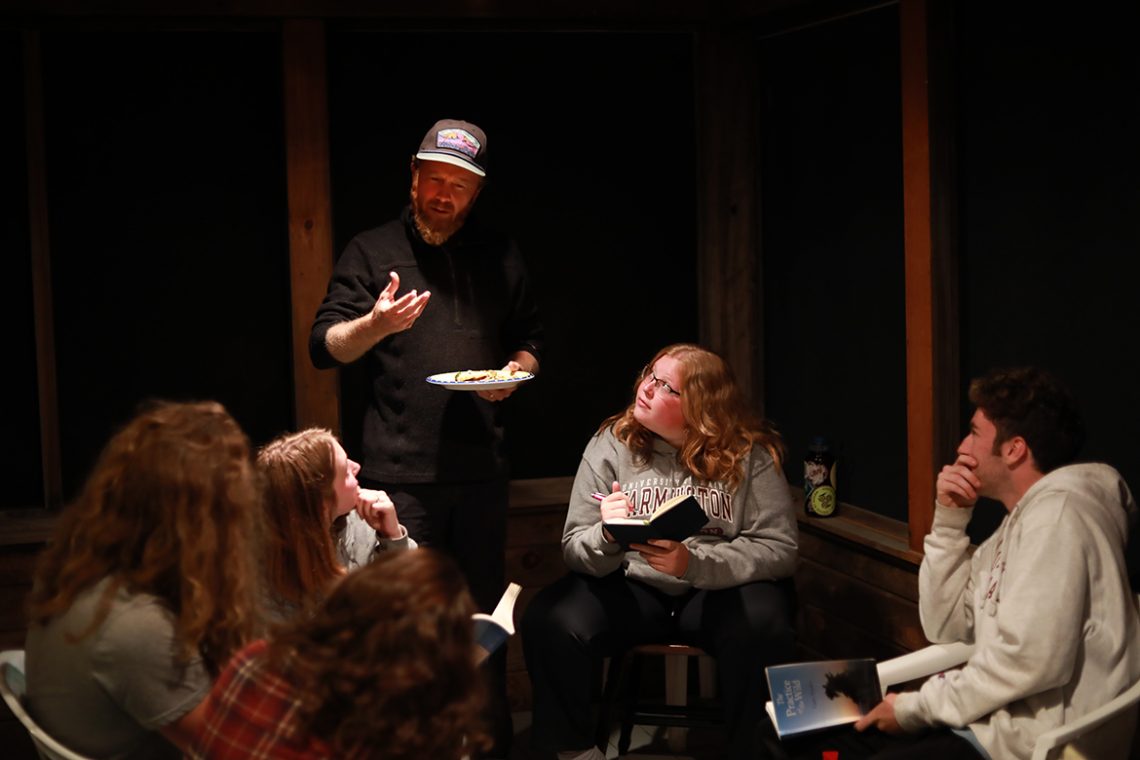
Assistant Profession of Religion Philip Francis engages students in an evening discussion of Gary Snyder’s The Practice of the Wild during a week-long, first-year seminar held on the Maine coast. (Photo by Ryan Mastrangelo.)
Taught by Philip Francis, assistant professor of religion, and supported by the historic Catalyst Fund gift to the University, the site-specific seminar was held at Seguinland Institute in the coastal woods of Georgetown, Maine. From this picturesque town near the mouth of the Sheepscot and Kennebec rivers, Francis and his students considered readings by American nature writers such as Wendell Berry, Annie Dillard, Mary Oliver, and Henry David Thoreau in their quest for answers.
“The course intentionally places students in a Thoreau-like setting, in which their reflections on what constitutes the good life can be honed by deliberate living that is close to nature and shaped by the readings,” says Francis.
Providing first-year students with the opportunity to consider what makes for a good life fills an unspoken and perhaps unrecognized need, says Francis — especially at this time in their lives, as they find themselves on the cusp of unprecedented social and intellectual change.
“Students are hungry for opportunities to explore these questions, which are among the most important questions of all,” says Francis. “I wanted to create a course in which students could engage these issues with academic rigor in a retreat-like setting, immersed in the natural world. I cannot think of a better way for students to kick off their time at UMF.”
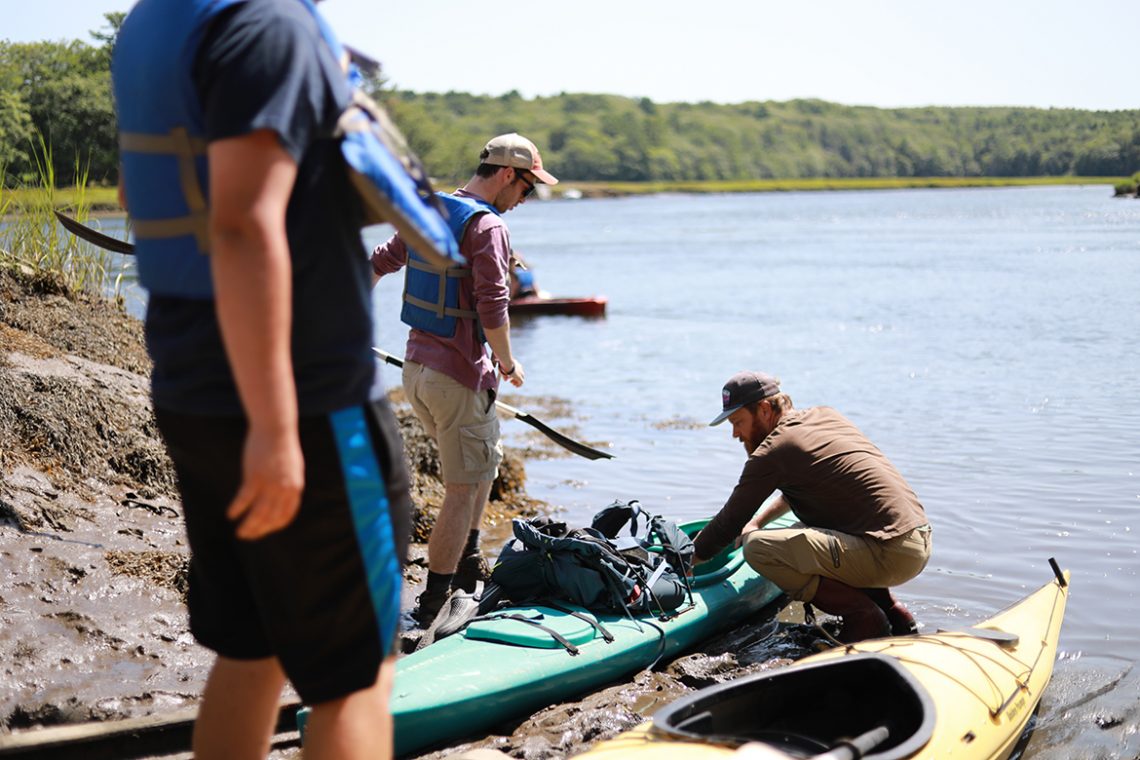
Francis, right, helps students load their kayaks for a paddle out to nearby Perkins Island for the seminar’s five-hour “Awe and Wonder Day” contemplation exercise. (Photo by Ryan Mastrangelo.)
Through mid-October, Francis and the students will continue the readings and discussions in a more traditional on-campus classroom setting. But the impact of the initial off-campus week endures, says first-year student Koley True ’23 of Bryant Pond, Maine.
As for what she has found most impactful during the Part 1 off-campus week, True recounts kayaking out to Perkins Island for “Awe and Wonder Day.”
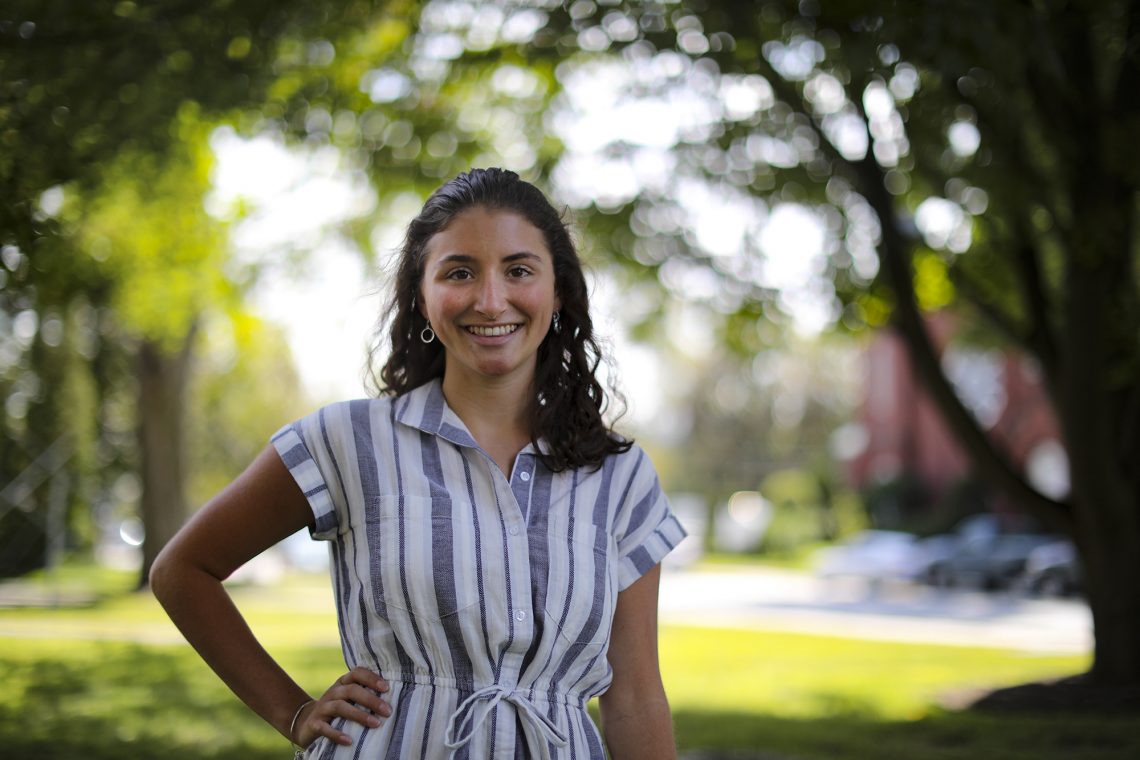
Seminar participant Koley True ’23 says without the innovative First-Year Fusion seminar, “I wouldn’t be able to handle the transition to college as well as I am. It’s been a transformative experience.” (Photo by Marc Glass.)
“Phil sat us all down after breakfast and told us to bring our journals, no reading material, and get ready to spend five hours, alone, in the woods that day. I could barely fathom being alone with my thoughts for that long,” she recalls. “But in order to experience wonder about something, we learned that thing has to be greater than yourself.”
In the long, uninterrupted embrace of nature and her own appreciation of it, True says she reached a new ability to recognize two key ingredients of a good life.
“The meditative time gave me an opportunity to think about awe and wonder in the natural world. I was and remain grateful for the opportunity to open my eyes to the awe and wonder I have in myself.”
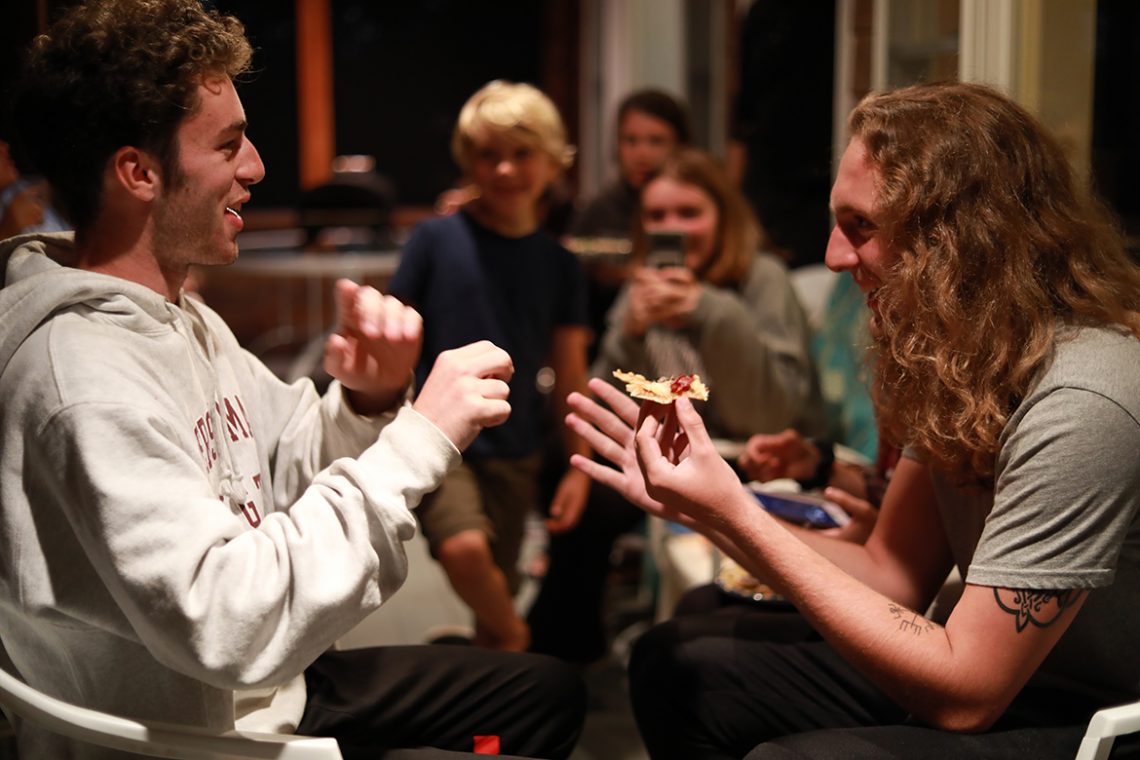
New roommates and classmates Cameron McLaughlin ’23 (left) and Connor McBrady ’23, who met during The Good Life seminar, share a laugh and bond over a meal of cauliflower-crust pizza in late August. (Photo by Ryan Mastrangelo.)
Francis says a central goal of the course is for students to make thoughtful connections between the ideas posited in the readings and their daily experience of nature and the good life.
The students, he says, appraise Thoreau and others in the context of tensions that are nearly universal to the modern human experience: how to reconcile a desire for autonomy with the satisfaction that comes from belonging; how to attend to the need for solitude while remaining an engaged member of a community; and how to achieve the serenity that can be derived from simplicity in an age when we feel tethered to technology.
And Francis believes the course serves another vital purpose: “Before their first semester of college has even begun, the students already feel like part of a tight-knit cohort. They have a strong connection to a faculty member, and they have an appreciation for the spirit of the liberal arts at UMF.”
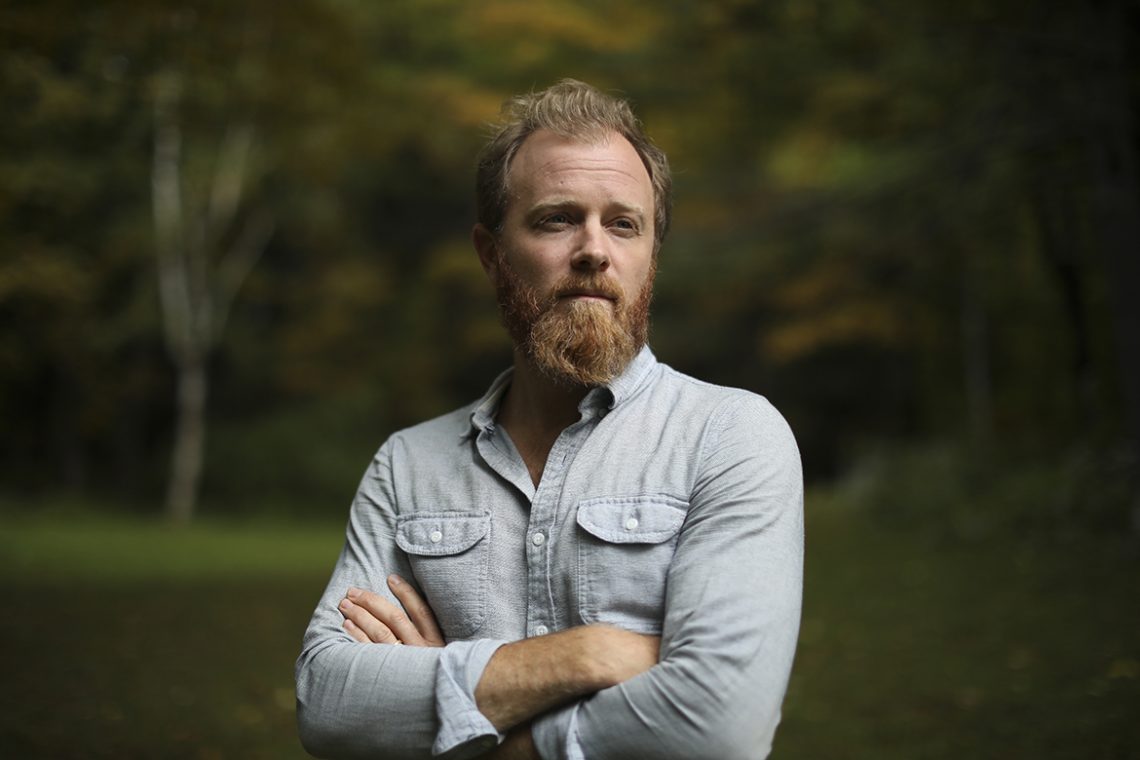
Assistant Profession of Religion Philip Francis. (Photo by Marc Glass.)
Back on campus, True is now several weeks into another path-to-good-life assignment from Francis: establish a new habit for 30 days.
“I’m spending time each day assessing myself — where I am at and my headspace, so I can put myself forward to the day with clarity,” she says. “In this way, I can be more present and open to what I’m experiencing in the moment. I can say to myself, ‘I’m here. This is what’s happening, and I can be fully present for that right now.’”
True says her peers’ 30-day habits include speaking up more in class, seeking out opportunities to take risks and experience rejection in order to become OK with it, and having meaningful contact with at least one friend each day.
“Each person’s habit proves we all take a different path to living a good life,” says True. “The course doesn’t prescribe the path for you. It’s been a transformative experience. I never would have imagined that a college course could be so impactful on my life.”
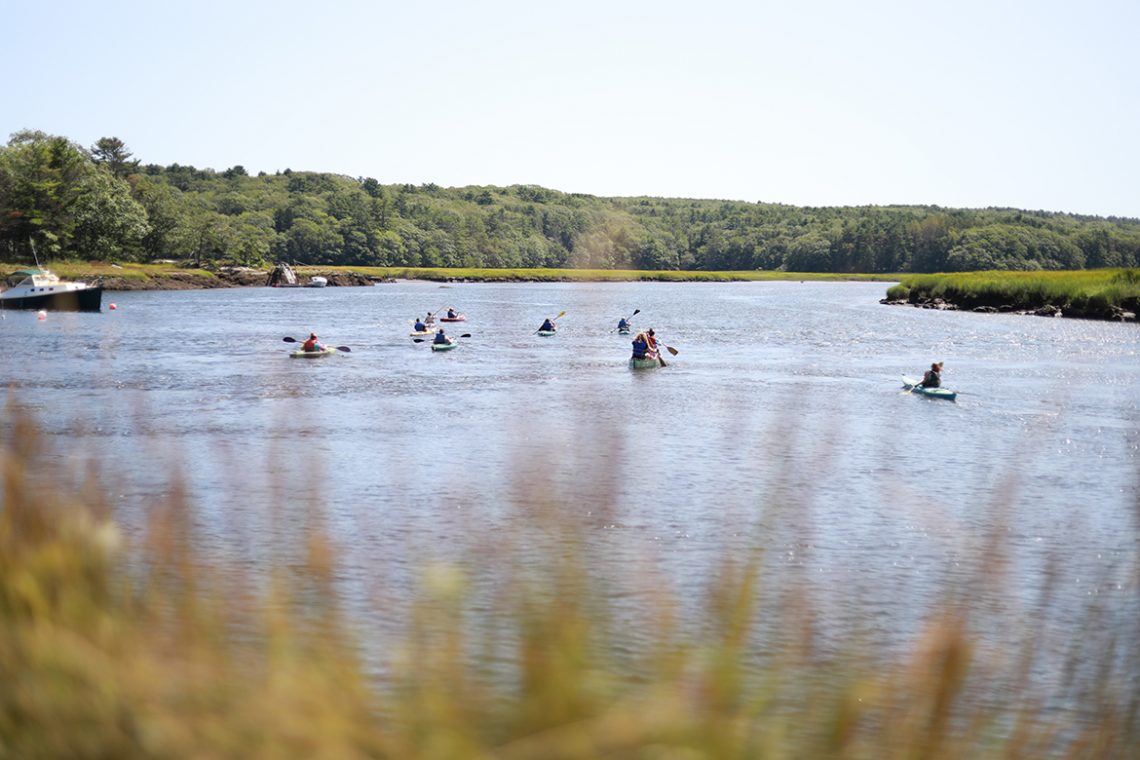
The 13 first-year seminar students are successfully launched for a day of writing and contemplation on Perkins Island — and their entire UMF adventure. (Photo by Ryan Mastrangelo.)

